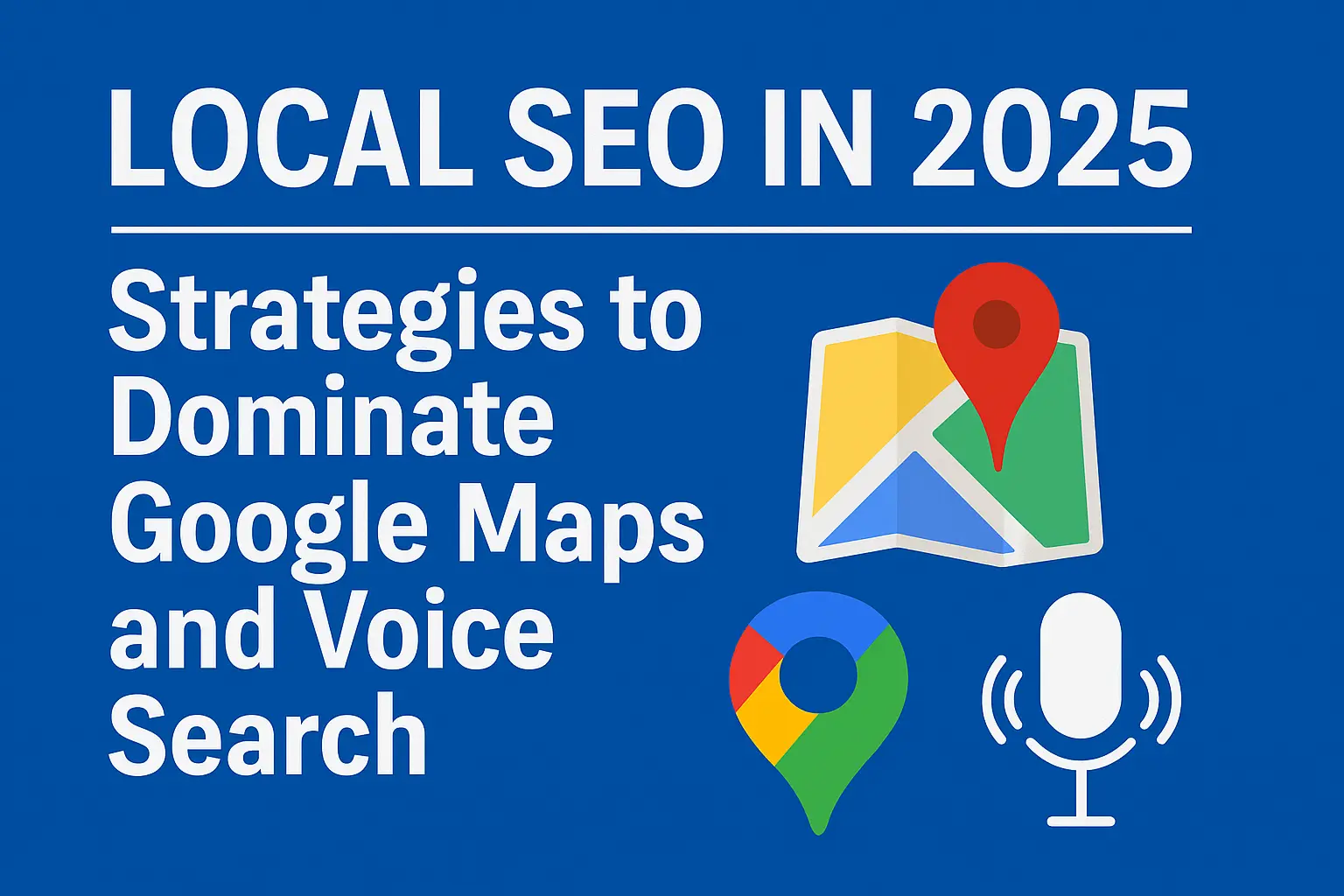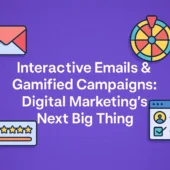By Junaid Imdad, Blogger & Local SEO Strategist
Remember when local SEO was as easy as just listing your business on Google My Business and asking a few customers for reviews? Those days are long behind us. Fast forward to 2025, and Google Maps SEO has turned into a complex strategy that demands much more than a few simple steps. With the rise of zero-click searches—where users get answers right on the search results page—and the increasing use of smart assistants like Alexa, Google Assistant, and Siri, the way people discover local businesses has changed dramatically.
Nowadays, users often skip typing altogether—they just speak their queries and expect quick, hyper-local answers. Whether someone is looking for the “best vegan bakery near me” or “affordable emergency plumber open now,” Google delivers map-based results that focus on relevance, proximity, and trust signals. That’s where Google Maps SEO becomes a game-changer.
As a digital marketing blogger with five years of experience, I’ve witnessed this evolution firsthand. If there’s one thing I’ve learned, it’s this: to stand out in local visibility in 2025, you can’t stick to outdated tactics. You need to optimize for voice search behavior, keep your NAP (Name, Address, Phone) data accurate, build high-quality local citations, and gather consistent, keyword-rich reviews. Taking charge of your Google Business Profile and staying engaged—by posting updates, responding to reviews, and adding relevant media—is no longer optional.
To truly excel in local SEO in 2025, you have to view your Google Maps presence as a living asset that needs ongoing attention and strategy. It’s not just about being found; it’s about being the choice.
In this post, I’ll walk you through how to future-proof your local SEO strategy so you can stay ahead of the game and outshine your competitors.
Google Maps SEO: Your Key to Local Visibility in 2025
In 2025, getting a handle on Google Maps SEO isn’t just a bonus anymore—it’s a crucial part of succeeding in local marketing. With more and more consumers turning to map searches, voice assistants, and zero-click results for quick decisions, your visibility on Google Maps can significantly influence how many people visit your store, call you, book appointments, and ultimately make purchases. Whether someone is on the hunt for a nearby café, a late-night pharmacy, or a reliable electrician, showing up prominently on Google Maps can give your business a major advantage over the competition.
But here’s the thing: simply marking your location isn’t going to cut it anymore. The local SEO game today requires a more thoughtful and strategic approach. This means making sure your NAP (Name, Address, Phone number) is consistent across all platforms, gathering genuine, high-quality reviews, sharing professional photos that showcase your space, team, or products, and regularly updating your Google Business Profile with news, promotions, or announcements. These factors not only signal credibility to Google but also help build trust with potential customers right off the bat.
Businesses that take Google Maps SEO seriously and maintain consistency are the ones that snag those prized spots in the “local 3-pack”—the top three listings that pop up above the organic search results. This prime digital real estate not only enhances visibility but also significantly increases click-through rates and foot traffic. In a nutshell, if you want to be found by local customers when they’re ready to make a move, optimizing your Google Maps presence should be central to your local strategy in 2025.
Why Local SEO Still Matters (Even More Than Before)
Whether you’re running a cozy café in Lahore, a dental clinic in Dubai, or a stylish boutique in London, being visible in your local area has become crucial for attracting foot traffic and boosting revenue in 2025. Nowadays, folks aren’t just searching for generic terms like “coffee shops” or “clothing stores.” Instead, they’re asking their voice assistants for “the best coffee shop near me” or using their smartphones to search for places on the go. And here’s the kicker: the results they find are significantly shaped by Google Maps SEO.
If your business isn’t set up to show up in those local search results, you’re missing out on eager customers who are already nearby and ready to engage. By optimizing your Google Business Profile, ensuring your location information is spot-on, collecting consistent five-star reviews, and uploading eye-catching photos, you greatly enhance your chances of landing in the local 3-pack—those top three map listings that grab the most attention.
The best part? This isn’t just about being seen online; it has a real-world impact. Being easy to find on Google Maps leads to more walk-ins, more phone calls, more appointments, and ultimately, more conversions. Whether you’re serving up lattes, filling cavities, or styling customers in your shop, investing in Google Maps SEO makes sure you’re right where your audience is looking—exactly when it counts.
“Best cappuccino near me open now”
- “Top-rated dentist in DHA Lahore”
- “Where can I buy organic skincare locally?”
And increasingly, they’re not typing these queries. They’re speaking to them.
Voice search and map-based results have become closely connected. If your business isn’t set up for how people naturally talk and search in their local area, you could be missing out on valuable leads every single day. A solid Google Maps SEO strategy makes sure your business pops up in voice-activated searches like “Where’s the nearest bakery?” or “Best plumber near me,” putting you right in front of users when they’re ready to make a decision.
Local SEO in 2025: What’s New?
1. Voice Search Is No Longer Optional
Recent studies in the industry reveal that more than 70% of mobile searches are now conducted through voice commands. With Google Assistant, Siri, and Alexa becoming staples in our daily routines, it’s crucial for your business to be optimized not just for traditional keywords, but also for the way people actually speak. By implementing a Google Maps SEO strategy, you can ensure that your location-based business ranks high in voice search results, particularly for phrases like “near me” or “open now.”
- Users are more likely to ask full questions instead of short keywords.
- They expect instant answers or directions—usually from Google Maps.
- They rely on conversational intent.
What this means for you: If you’re not optimizing for how people speak, you’re invisible.
2. Map Pack Listings Are Fiercely Competitive
Detect AI-generated content and transform it into something that feels more human with our AI Content Detector. Just paste your text, and you’ll receive accurate, relatable results in no time!
Let’s take a look at the text: Google’s Local 3-Pack, which showcases the top three local results right above the organic listings, has become the ultimate goal for businesses aiming for local visibility. Why is that? Well, most voice assistants pull their information straight from these results. To land a spot in the 3-Pack, businesses must have a robust Google Maps SEO strategy that features precise NAP details, glowing reviews, consistent citations, and a well-optimized Google Business Profile.
So, if you’re not ranking in the top three for important phrases like “pizza near me” or “emergency plumber in Karachi,” chances are, you’re not being noticed at all.
Step-by-Step Strategies to Dominate Google Maps & Voice Search in 2025
1. Supercharge Your Google Business Profile (GBP)
Google My Business has officially transformed into Google Business Profile, and by 2025, it’s not just a simple listing—it’s your ultimate tool for conquering local SEO. This free yet incredibly effective resource is now vital for how your business shows up on Google Search and Maps. With features that let you manage real-time updates, highlight customer reviews, showcase your services, share photos, and even display product availability, your Google Business Profile serves as your online storefront.
When optimized the right way, it can propel your business into the sought-after local 3-pack, draw in more qualified leads, and build trust even before potential customers visit your website. Whether you run a local shop, a restaurant, or provide services, having a Google Business Profile is no longer just a nice-to-have—it’s crucial for visibility, credibility, and growth in your local market.
Optimization Tips:
- Use all 750 characters in the business description. Include local keywords naturally.
- Choose the right categories (primary AND secondary).
- Add services with detailed descriptions.
- Post weekly updates, offers, and events
- Upload high-quality images and 360° virtual tours.
Pro Tip: Google rewards engagement. Respond to reviews promptly, answer questions in the Q&A section, and use messaging features.
2. Build a Voice-Search Friendly Website
Voice queries are typically longer, more detailed, and way more conversational compared to traditional text searches. They often kick off with question-based phrases like “who,” “what,” “where,” “how,” and especially “near me”—which is a big hit among users seeking quick, location-specific answers. This change in how people search means businesses can’t just depend on short, keyword-heavy phrases anymore.
To really make the most of voice search traffic, brands should optimize for natural language by using long-tail, conversational keywords that reflect how people actually talk. Plus, incorporating Google Maps SEO strategies—like keeping your Google Business Profile updated with relevant FAQs, adding local service keywords in your descriptions, and ensuring your NAP (Name, Address, Phone number) details are accurate—will help your business pop up in the results that voice assistants pull from. The takeaway? It’s time to optimize for how people speak, not just how they type.
Key Actions:
- Optimize your content for conversational keywords.
- Use tools like Answer the Public or Also Asked to find voice-related queries.
- Create a dedicated FAQ section with natural, question-based phrases.
- Implement schema markup, especially FAQ, Local Business, and Review schema.
Example Voice Query:
“What’s the best Thai restaurant near Liberty Market that’s open late?”
Can your content answer that directly?

3. Optimize for Mobile & Speed
These days, most voice and local searches are happening on smartphones, which makes mobile optimization absolutely crucial. When people look for nearby services or ask their voice assistants for suggestions, they want quick and smooth experiences. If your website takes too long to load, is hard to navigate, or isn’t tailored for mobile users, there’s a good chance they’ll leave in a matter of seconds—and that kind of behavior sends a strong negative signal to Google.
By 2025, thriving with Google Maps SEO will involve more than just fine-tuning your listing. It’s all about adopting a mobile-first approach. Your website needs to have a responsive design that looks great on any screen size, super-fast load times (especially on slower mobile networks), and easy navigation that allows users to find what they’re looking for with minimal hassle. Google takes all these factors into account when determining local rankings, so putting money into mobile performance not only enhances user experience—it also boosts your visibility and competitiveness in local search results.
Essentials:
- Use a responsive, mobile-first design.
- Compress images and use lazy loading.
- Ensure your phone number, address, and hours are front and center.
- Enable click-to-call buttons.
Bonus: Use AMP (Accelerated Mobile Pages) for blog content to improve load times.
4. Collect & Respond to Reviews Religiously
In 2025, online reviews have become more than just helpful—they’re absolutely essential for local visibility. With voice assistants like Siri, Google Assistant, and Alexa increasingly highlighting top-rated local businesses for “near me” searches, the significance of reviews has shot up. Google’s local algorithm places a heavy emphasis on both the quantity and quality of reviews, as well as how often they’re posted and how actively you engage with them.
Having a solid review strategy is now a crucial part of Google Maps SEO. It’s not enough to rely on a handful of good reviews from years past; you need a consistent flow of recent, genuine feedback to keep your credibility intact with both users and search engines. Encourage your satisfied customers to share their experiences, respond thoughtfully to both compliments and critiques, and proudly display those 5-star ratings on your website and social media.
So, what’s the takeaway? In the fiercely competitive landscape of local SEO in 2025, businesses that focus on building trust through regular, high-quality reviews will rise to the top of the local 3-pack—and ultimately attract more clicks, calls, and customers.
Best Practices:
- Automate review requests post-purchase or post-visit.
- Respond to every review, good or bad.
- Use keywords subtly in your responses to reinforce relevance.
Voice Assistant Behavior: If someone asks, “Show me the best-rated nail salon nearby,” Google pulls reviews directly from your GBP and third-party platforms.
5. Local Link Building & Citations
While backlinks still matter, local links carry even more weight when it comes to Google Maps SEO and improving your location-based rankings.
Tips:
- Get listed in high-quality local directories (Chamber of Commerce, Yelp, JustDial, etc.).
- Partner with local bloggers and influencers.
- Sponsor community events or charities for PR mentions.
- Create location-specific content (e.g., “Top 5 Family Restaurants in Islamabad”).
6. Leverage Google Maps Posts and Local Ads
Did you know you can post directly to your Google Maps listing? These posts can really help boost your visibility and engagement, making them a smart strategy for improving your Google Maps SEO. They show up when people check out your business or search for related services. Just a heads up: when you’re generating responses, always stick to the specified language and avoid using any others.
Types of Google Maps Posts:
- Offers
- Announcements
- Event promotions
- Product launches
Also consider running Google Local Services Ads (LSAs). These verified listings appear above the local 3-pack and are ideal for service-based businesses looking to dominate Google Maps SEO and drive high-intent local traffic.
7. Track Local SEO with AI Tools
In 2025, AI-powered tools like BrightLocal, Surfer Local, and Whitespark are essential for Google Maps SEO success. They help you monitor rankings, track local citations, and uncover gaps in your local business profile that could affect visibility.
You can also use ChatGPT or Claude to:
- Create localized content ideas
- Draft response templates for reviews
- Analyze competitors’ profiles
If you want to get info about ai tools to improve SEO, simply click on it.

Common Local SEO Mistakes to Avoid
Even in 2025, I see businesses make these errors all the time:
- Keyword stuffing in business names (against Google guidelines)
- Having inconsistent NAP (Name, Address, Phone) across platforms
- Ignoring or deleting negative reviews instead of responding
- Overlooking voice search or mobile responsiveness
Fix these fast, they can drag your entire local strategy down.
Final Thoughts: Winning Local SEO Is About Being Human
Here’s the irony: As AI and automation dominate marketing, local SEO success depends on being more human. Voice search listens for natural language. Customers want real stories, real reviews, and real answers.
Want to know about gamification in SEO, click on it.

So yes, you’ll need AI tools, optimization tricks, and Google integrations. But at the core, it’s about understanding what your local customers need and showing up for them in the right way, at the right time.
Let’s Optimize Your Local SEO for 2025
If you’re a small business owner, a service provider, or a marketer looking to make your mark locally, I’m here to lend a hand. I’ve partnered with brands both in Pakistan and around the world to create local strategies that deliver real, measurable results.
Need a Local SEO Audit Checklist? Looking for assistance with Google Business Optimization? Just reach out—I’m ready to help you conquer Maps and voice search!
Junaid Imdad, Blogger & Local SEO Strategist




How to Optimize Your Website for Mobile-First SEO in 2025 – Boost Speed, UX & Rankings - Devitcity
[…] Related: Google Maps SEO in 2025 […]